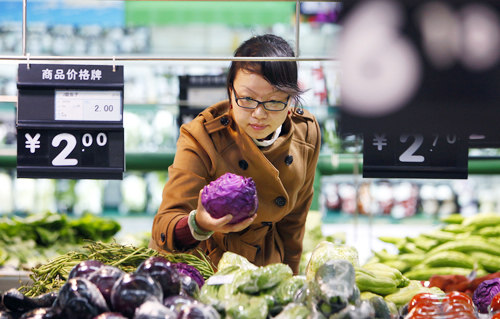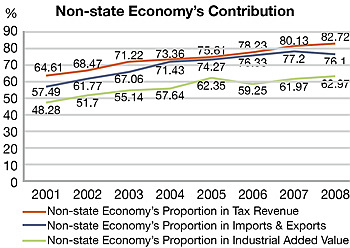 |
|
FREE TRADING: A Consumer picks up vegetables at a supermarket in Beijing. A majority of goods are now traded at free-market prices in China (WAN XIANG) |
Meanwhile, highly concentrated shareholdings remain a hindrance to the improvement of corporate governance. The CASS conducted a survey of the top 100 listed Chinese companies in 2010, and found most of them delivered improved performance in information disclosure, risk control and asset management. But 71 percent of them had their five largest shareholders holding more than half of their assets, slightly lower than that of 77 percent in 2009.
"Such a shareholding structure makes it difficult to safeguard interests of smaller investors, and may easily deter mergers and acquisitions (M&As)," said Zhang Zhengjun, a researcher at the Development Research Center of the State Council.
"One solution is to propel shareholding diversification of SOEs, such as introducing strategic investors." added Zhang.
Feng Bing, Executive Deputy Director of the China Enterprise Confederation, pointed out that a pressing task for China is to strengthen IPR protection, a cornerstone of the regulatory framework in a market economy and a powerful catalyst to generate innovation.
In the past decades, the country has attained significant results by launching a string of campaigns to crack down on counterfeit and pirate products. Firms are also attaching greater importance to their IPR value.
According to a recent report of the World Intellectual Property Organization, China ranked the second in terms of international trademark applications through the Madrid System for the International Registration of Marks, and the fourth place in international patent applications.
"The protection system is improving, though flaws still exist," he said. "There still appears to be gap in IPR legislation and its enforcement."
"The price IPR violators have to pay is still low in China, making it a poor deterrent," he said. "Moreover, the public awareness of IPR protections also needs to be lifted."



 | 